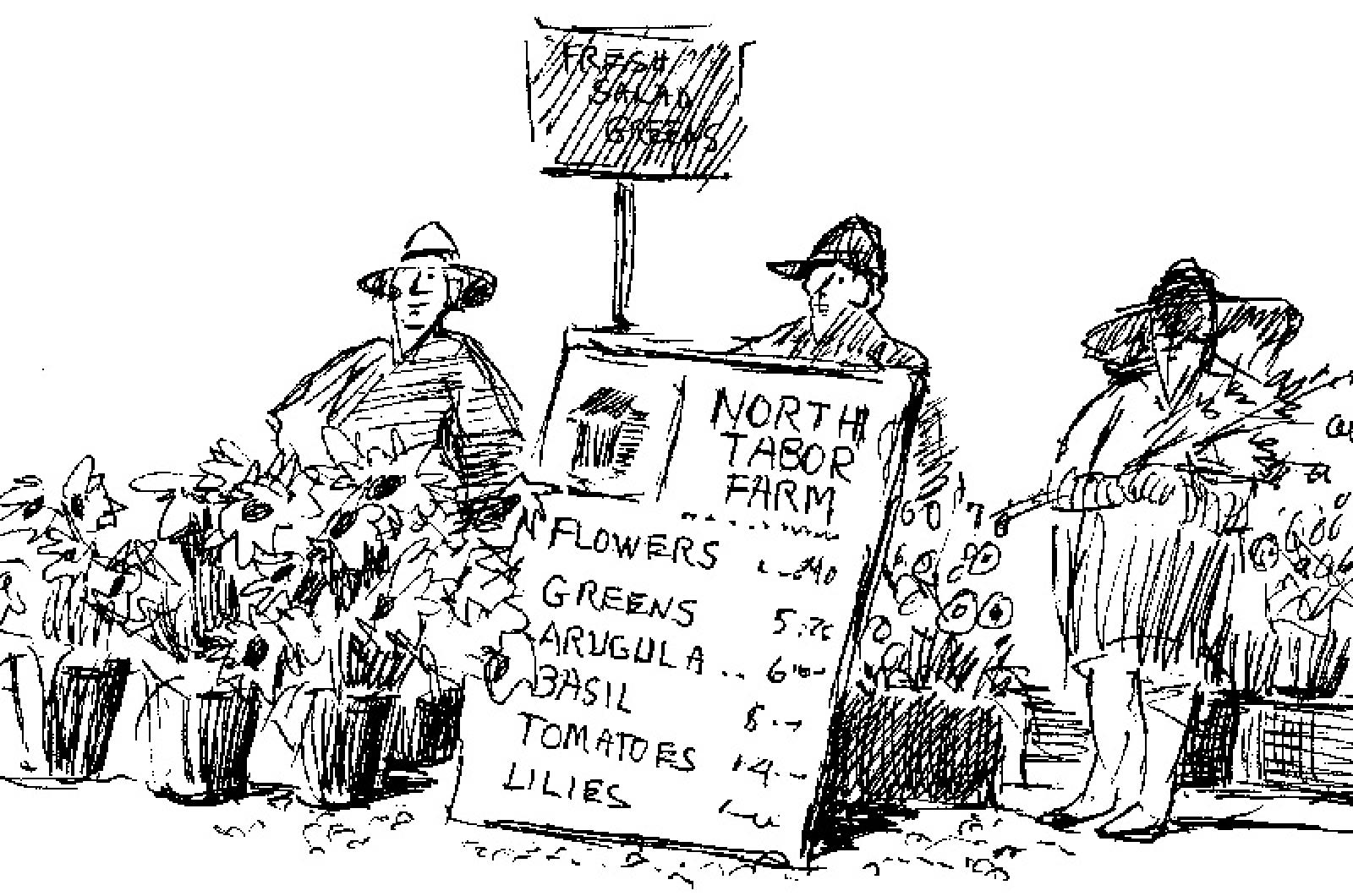At the West Tisbury Farmers’ Market, an impromptu conversation popped up between two strangers standing in line waiting to buy bread. The conversation was about the market itself, and how nice it has been this summer.
All around there was color and life beneath the tented stands on the old fairgrounds, where the market has been staged for a second summer due to the pandemic: buckets of flowers, tomatoes, peppers and eggplants piled high, free-range eggs nestled in plain brown cartons, translucent honey from local hives. At the Morning Glory Farm stand a dedicated corn-only line was set up for people eager to fill their bags with pale green ears still warm from the fields. Around the corner an Island poultry farmer sold fresh chicken. A Menemsha waterman was hawking lobsters that had been pulled from the clear waters of the north shore. There was lemonade, salsa and smoky fish chowder. Those famous eggrolls. And the artisanal bread of course.
It was perhaps enough on this day to just soak up the scene, as July turned to August and the Vineyard rounds the mark of midsummer.
Crowds and lines are a settled way of life in the summertime, bringing business to the hardworking farmers and purveyors at the market, who depend on the short season for their livelihood — like every business on the Vineyard.
Bustling harbors. Busy restaurants. Beaches lined with colorful umbrellas and towels. These are the familiar sights and sounds of summer and hallmarks of a healthy resort economy.
But there are troubling signs that the Island is near or even at capacity. The pandemic brought a new wave of year-round residents to the Island, and summer visitors are at an all-time high. Old systems that worked well for so many years are overburdened: ferries, wastewater, housing, roads and traffic are all at their outer limits. Once-pristine harbors and ponds have reached a tipping point, with closures caused by pollution occurring with increasing frequency.
Quite apart from the Island’s infrastructure, the strains are telling in more intimate ways. Emergency room visits are up, incivility is on the rise and reports of road temper, if not rage, are cropping up repeatedly. Two horrific incidents involving children in just the past two weeks add to the creeping sense that the Island is not the haven of safety it once was.
And what of the media mess that President Obama’s planned 60th birthday party became? There was a time when heads of state and other celebrities could be left alone to enjoy the charms of Martha’s Vineyard like anyone else. But legitimate community concerns about a resurgence of Covid as the summer population teems combined with a super-charged political atmosphere nationally made efforts to keep the size and scope of the celebration under wraps seem arrogant and out of touch.
The Obamas made the right decision to scale back the party to family and friends, but waited too long before releasing a public statement on Wednesday.
The Vineyard is still a breathtakingly beautiful place to live and visit. The thriving arts and music scene, the opportunities for intellectual engagement, the array of options for sport, social interaction and quiet contemplation on land and sea, the enduring traditions like the fair and the farmers’ markets are unmatched. And over the decades the Island has shown remarkable resiliency. But on every front, the balance can shift with lightning speed, threatening to make Martha’s Vineyard a victim of its own popularity.
There is no one solution, but saving what makes the Vineyard the singular place it is requires both individual and collective efforts to respect that a small Island has its limits.







Comments
Comment policy »